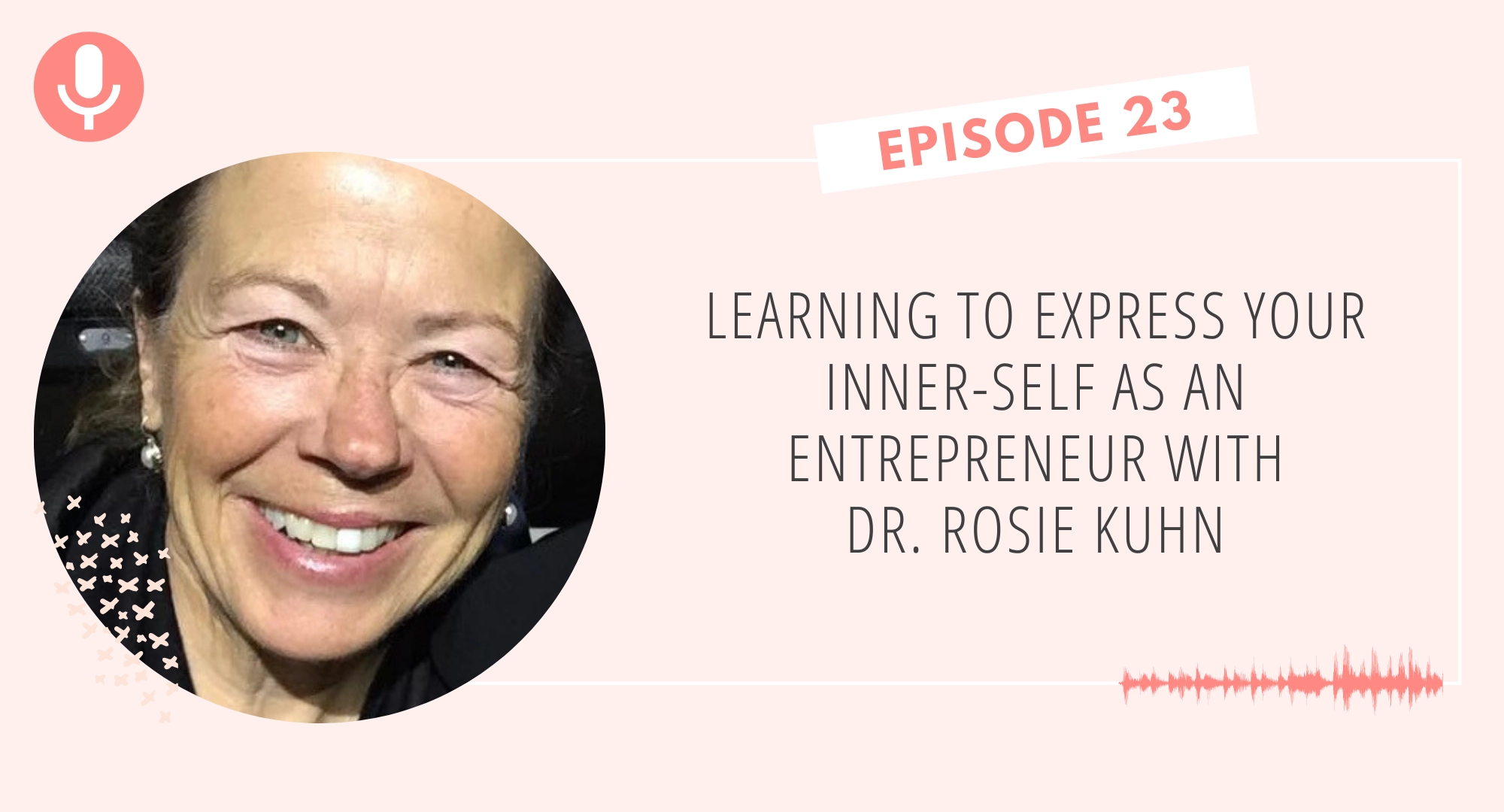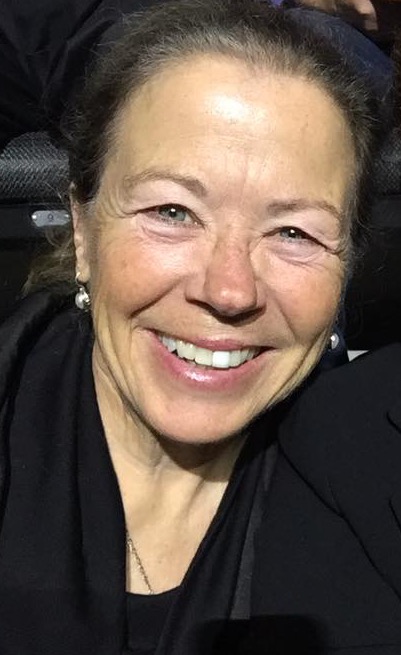Struggling to get the results you want from your emails?
Discover 15 simple yet powerful ways to elevate your email marketing and start seeing real engagement!
Grab your freebie!
Blog Categories
Helping small business owners, virtual assistants, and creative entrepreneurs grow their business.
Hi, I'm Tara! I'm a multi-passionate business and marketing coach.
learn more + get a copy:

Have you ever thought that you wouldn’t be good at something before you even practice? As entrepreneurs, it’s important that you are learning and practicing to become better at your skills, but you can’t do that until you give it a chance. When you say you can’t do something like writing a book or painting a picture, you haven’t given yourself the chance to try something new. Your ability to write the book won’t happen until you practice. Let yourself lead with inspiration because you might just be surprised at how you express yourself. Are you ready to learn more about how to express your inner-self as an entrepreneur?
Disclaimer: I earn from qualifying purchases. Some of the links on my website are affiliate links, which means, at no additional cost to you, I will earn a small commission if you click through and make a purchase.
Our guest on the podcast today is principal and founder of The Paradigm Shifts Coaching Group, Dr. Rosie Kuhn. She trains individuals to become transformational coaches by focusing on personal and spiritual development in oneself, in relationships, and in the workplace. She is the author of 13 books including, ‘Self-Empowerment 101,’ and ‘I’ve Arrived! Well, Sort Of’. You can also find her on Youtube and she has several podcasts including Spiritual Immersion and Aging Like a Guru
In this episode, Dr. Rosie and I dive into her journey of becoming a therapist and coach, her inspiration for writing 13 books, doing things that contribute to your well-being and expression of self, how to express yourself as an introvert, the importance of checking in with yourself, how making tiny adjustments to your language can change the energy behind it, and much more.
Becoming a Marriage & Family Therapist Led to a Life of Purpose
Early on for Rosie, as the sixth child, in a family of nine and living in Detroit, Michigan, it was a journey to figure out who she was as an individual. After getting married and having 2 kids, she realized the path she was on with her partner wasn’t the right one for her. This led her to train as a family and marriage therapist at a center in Canada called, Interfaith Pastoral Counseling Center. She was trained in family therapy, but from a perspective of pastoral counseling. Her training was about being human, the spiritual elements, and the challenges that we as humans face. This to Rosie was a wonderful introduction on how to work with people in a very conscious, compassionate way. She saw clients for around 8 years doing marriage and family therapy in the field of recovery. This was her real training in working with people and allowed her to get really clear about the importance of addressing who we are as spiritual beings in this human experience because it’s where we get lost quite often.
Then she went sailing for two years across the Atlantic Ocean on a 93-foot schooner with five other people. When that was over, she came back wondering what’s next for herself and to address more, how do you address spirituality and one’s life, as a professional. She found a school in California, called the Institute of Transpersonal Psychology, which is now Sofia University. It’s where Rosie got her Ph.D. at 51, focusing on spiritual direction. From there she found life coaching, which was a great way to piece together all of the things she had learned. A few years later, she also began writing books, and now has 13 that she has written on helping others on their spiritual journey. So for the past 20 years, Rosie has coached individuals, groups, and organizations to be transformational coaches through her business, The Paradigm Shift Coaching Group, and it’s what she is most passionate about.
Making Space for Expression and Inspiration to Write Books
What inspired Rosie the most to write her books was the fact that, although she had been training others on how to become transformational coaches, she didn’t have a manual to help guide them as she taught them. When she started writing her first book, she had all sorts of images come up that made her question who she thought she was, in thinking she thought she could write a book. An unspoken theme in her family had been that she was a nobody. She also questioned her right to even write her first book, so that initially hindered her writing process. The writing, for her, became about inspiration from the divine. She called it a download more than anything because as she listens and hears, it’s also an integration of a knowing.
It has always been a dream of mine to write, but in an English class in high school, I had an experience that ruined my confidence. Even for Rosie in high school, her overall grade in English was a C minus. Her grammar was so poor in college that she had to take a remedial English course, so it was a huge deal for her to start writing books when she did. Her writing skills really took off when she wrote about her time sailing and the transformational experience she had on the water for those two years. Once she found her calling, in terms of therapy, and the whole unfolding of how things happened, she started to blossom. Rosie was close to 30 when that happened. Her advice to you is if you’re inspired to write, listen to the inspiration, and just start writing when you’re inspired. She says it has nothing to do with your abilities, other than to express yourself, your essential nature. There’s a desire to express, so you need to exercise that muscle of expressing yourself. It’s not just about business, in a sense of being an entrepreneur, but that introvert element that you’re addressing in your work needs to be nurtured.
Doing What Contributes to Your Well-Being and Self Expression
When you’re talking about expressing yourself and really doing it for yourself, in terms of writing a book, it’s not necessarily with the purpose of selling it and putting it out there, but instead using it as a creative outlet. From there, the transformation will happen, whether it’s art, writing, or whatever outlet you choose. Rosie says that if it’s not for the purpose of expressing yourself, then disappointment is bound to happen. With her writing the number of books that she has, you would think that she’d be making loads of money. She only makes $200 to $250 a month on the books she’s written. She does them for the fun of expressing, not to solely make money to live off of. That leads to disappointment.
Her point in this is that her writing isn’t a significant contribution to her prosperity, but it’s a high contribution to her well-being and the expression of her essential nature. That’s a higher fulfillment for her than prosperity or wealth. That might be true for a lot of introverted people. How do you be in the world when you’re so used to being in a clamshell, so finding that expression of self is important. I see so much in the online space all about the dollars. People are talking about launches, and I made this much and that’s not my main focus. My main focus is serving, helping, unleashing my own creativity, and doing things that bring me joy.
How to Express Your Inner-Self as an Introvert
Learning how to express your inner-self is important. Introverts can express themselves and be themselves without being scared or fearful. There is a way to tap into your inner-self and your joy to put it out there in the world. The biggest challenge is to find the balance. When Rosie was teaching on a sailboat over weekends, it seemed like eight hours a day she was with people. She would come home and that was her time to be with herself. There’s that balance between the two. The way that you take care of yourself, that’s the most important thing. Where there’s that balance between you in the world and then how you are with yourself in a way that’s nurturing and nourishing, that’s the balance.
I love the quote that self-care isn’t selfish because it’s so necessary, especially for introverts. If you’re struggling with balance, you need to ask yourself those questions internally about what you need, and then make space in time for it. That self-fulfillment has to come first. It has to be the foundation of everything else. It’s the life spring, as Rosie calls it. It’s from that place of self-nourishment becomes the wellspring for your expression in the world, which you want to be love, happiness, fun, joy, and creativity. But if you don’t, basically you’ll get sick, either mentally, emotionally, spiritually, or physically.

The Importance of Checking in With Yourself
It’s important to ask yourself what you need, but more importantly what you want. It’s so important to ask yourself anytime you’re starting to feel anything or even just daily, check-in with yourself, ask yourself that question. Want is more important because in essence, the need is usually more survival-based. Want is different and speaks to the whole person versus that ego part perhaps or the little part of us. Rosie uses a magic wand with her clients that a friend gave her. When clients come to her to get coached, in the initial first few sessions, she uses the magic wand to act as their fairy godmother to empower her clients to ask for what they really want in their lives. It turns from survival-based into a delightful experience of power and asking for what they truly want and these things they want are usually scary to them because they don’t think they can have it.
There are four questions that Rosie uses most in her training. There are thousands of ways that you can ask the questions and different depths of the questions, they are:
What do you want?
What’s it like to have what you want?
What needs to shift in order for those obstacles to go away?
What will you practice to make that shift happen?
So it’s, what do you want? Let’s get really clear about what you want, and get excited and passionate about what you want. Then it’s focusing on what’s in the way of having that. For the third question, 99% of it is that you need to shift the way that you’re interpreting your life, the people in it, or the world. So when you shift the way that you see the world, and how you see yourself, then magic happens. Then for question four, it’s about shifting the way that you’re relating to business. If you say that you don’t want to work really hard in your business, then that’s your interpretation of business. On the other hand, it could be interpreted as being an entrepreneur allows me freedom, fun, and flexibility. So you then start creating from that place. The practice for you then is to train yourself to notice when those thoughts are not in alignment with what you believe now to be true.
Adjusting Your Language to Change the Energy Behind It
There is a field of coaching based on what is called Ontology. Ontology is the science of the languaging of your being. Basically, you are languaging our being all the time. When you say, I can’t, Rosie says it’s a reinforcement of you being as you can’t, for whatever reason. It’s a way of languaging your perception of yourself. Languaging is so important in how you look at yourself, and how you communicate with yourself in the world. When you are more clear about those I can’t statements, it’s very different than, well, do you want to? What are you willing to practice, so that that actually happens? The languaging is so much more empowering than our normal language that we tend to use in our everyday life, which is fear-based. Making little tiny tweaks to the language completely transforms the energy behind it. The more that you can become aware of that in your languaging, the happier, and filled you will be, and the more you can contribute to the well-being of other people at the same time.
Dr. Rosie gave so many impactful tips on learning better ways to express yourself as an introverted entrepreneur on this episode of the podcast today. She shared her journey of becoming a therapist and transformational coach, what inspired her to write 13 books, doing things that contribute to your well-being and expression of self, expressing yourself as an introvert, the importance of checking in with yourself, and how making those tiny adjustments to your language can change the energy behind it. Be sure to follow Rosie on Instagram and Youtube for more helpful tips, and if you want to read any of her books visit her website to get an overview of each of them.
How can you start practicing your language this week to allow for better self-expression in what you want out of life?
a breakdown of this episode
[1:39] Rosie’s journey and background on how she became a Therapist and Coach, and the principal of The Paradigm Shift Coaching Group
[7:28] Rosie’s inspiration for writing her books and becoming an author with 13 books now written
[9:38] Finding your essential nature, or the ability to express yourself even if it’s something you question your ability to do
[15:45] Finding the balance as an introvert when tapping into your inner-self for joy and expression
[22:46] Checking in with yourself and inquiring about what you want in life
[28:56] Ontology, the languaging of your being, and asking yourself four important questions to take empowered action
If you enjoyed this episode, I invite you to take a screenshot and tag me on your Instagram stories @introvertcoach and tell me your biggest takeaway!
resources mentioned this episode:
Tara Reid is a multi-passionate business and marketing strategist for introverted entrepreneurs who want to grow without relying on hustle culture or social media. With 18+ years of online business experience, she helps course creators, service providers, and digital product sellers build sustainable businesses through evergreen marketing, blogging, SEO, Pinterest, and email.
As the founder of the Introvertpreneur Club, Tara’s mission is to show heart-centered entrepreneurs that you don’t have to be loud to be successful. You just need the right strategies that fit your personality.
When she’s not supporting clients or creating new resources, you can find her at home in Canada with her three rescue dogs, a cup of coffee in hand, dreaming up her next project.
The Introvertpreneur Podcast
listen in to the top rated business podcast that is designed for introverted entrepreneurs who want to grow + scale in a more sustainable and fun way!
Top rated podcast
This one's on me. Complimentary free stuff coming right up.
leaving so soon?
Look behind the curtain and see exactly what I do every week, month, and quarter, to market my business without social media (in under 5 hours per week)!
The Quiet Marketing Playbook
Take this free quiz and learn what your superpower is as an entrepreneur. You'll also get a curated list of my best resources and tips for using your superpower to your advantage!
What's your Introverted Superpower?
Best Free Resources:
dig into 'em now!
A business strategist and marketing coach who focuses on helping course creators, coaches, and service providers, build sustainable businesses without social media.
